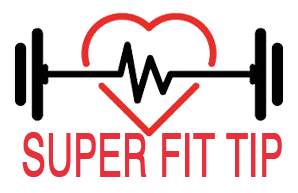When it comes to building muscle and achieving your fitness goals, proper nutrition is essential. Among the macronutrients, protein plays a crucial role in muscle repair, growth, and recovery. However, determining the optimal protein intake for muscle building can be a complex task. In this ultimate fitness guide, we will explore the science behind protein requirements for muscle growth, factors influencing protein needs, and practical tips to help you optimize your protein intake for muscle development.
Understanding Protein and Muscle Building:
Proteins are made up of amino acids, which are the building blocks of muscle tissue. When you engage in resistance training or other forms of exercise, your muscles experience micro-tears. Protein consumption helps repair and rebuild these damaged muscle fibers, leading to muscle growth and increased strength.
Factors Influencing Protein Requirements:
Several factors influence an individual’s protein needs for muscle building:
- Training Intensity and Frequency: The more intense and frequent your training sessions, the higher your protein requirements. Intense resistance training creates greater muscle breakdown, necessitating increased protein intake to support repair and growth.
- Body Composition and Goals: Your body composition, including muscle mass, fat mass, and overall body weight, influences protein needs. Individuals aiming for significant muscle gain may require higher protein intake compared to those focused on maintaining their current muscle mass.
- Gender and Age: Men generally have higher protein requirements than women due to higher muscle mass. Additionally, older individuals may require higher protein intake to counteract age-related muscle loss.
- Overall Caloric Intake: Protein needs are often proportional to your overall caloric intake. If you are in a calorie deficit for fat loss, maintaining a higher protein intake can help preserve muscle mass.
Determining Your Protein Needs:
While individual protein needs vary, several guidelines can help you estimate your protein requirements for muscle building:
- Recommended Dietary Allowance (RDA): The RDA suggests a daily protein intake of 0.8 grams per kilogram of body weight for the average sedentary individual. However, this recommendation may be inadequate for those engaged in regular resistance training.
- General Protein Range: A commonly recommended protein range for muscle building is 1.6 to 2.2 grams per kilogram of body weight. This range provides sufficient amino acids to support muscle protein synthesis.
- Personalized Approach: To determine your optimal protein intake, consider factors like training intensity, body composition, and goals. Consulting a registered dietitian or a certified sports nutritionist can help tailor your protein needs based on your specific circumstances.
Optimizing Protein Intake for Muscle Building:
Once you have an idea of your protein requirements, the following tips can help you optimize your protein intake:
- Distribute Protein Throughout the Day: To maximize muscle protein synthesis, aim to evenly distribute protein intake across meals. Consuming 20-30 grams of high-quality protein per meal is an effective strategy.
- Prioritize Complete Protein Sources: Complete protein sources provide all essential amino acids required for muscle growth. Include lean meats, poultry, fish, eggs, dairy products, and plant-based sources like quinoa and soy in your diet.
- Supplement Wisely: If you struggle to meet your protein needs through whole foods, protein supplements such as whey, casein, or plant-based powders can be convenient options. However, prioritize whole foods whenever possible.
- Post-Workout Protein Timing: Consuming protein shortly after your workout can enhance muscle recovery and growth. Aim for a protein-rich snack or meal within 1-2 hours of completing your training session.
- Stay Hydrated: Adequate hydration is essential for optimal protein synthesis and muscle function. Ensure you drink enough water throughout the day to support your fitness endeavors.
Protein is a critical component of muscle building and plays a vital role in muscle repair, growth, and recovery. Determining the optimal protein intake for muscle development is influenced by various factors, including training intensity, body composition, and goals. By understanding your specific protein requirements and implementing practical strategies to optimize protein intake, you can support your muscle-building journey and achieve your fitness goals. Remember, consistency in training, proper nutrition, and a balanced lifestyle are key to long-term success in building muscle and improving overall fitness.

